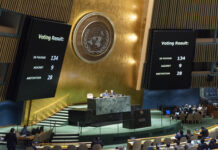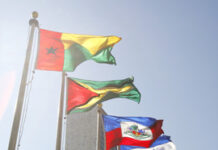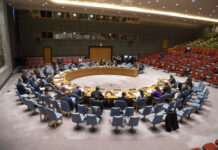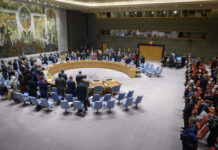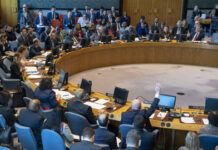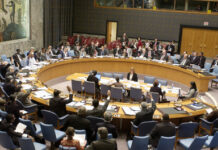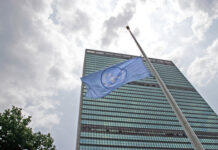Photo credit: DiasporaEngager (www.DiasporaEngager.com).
Yaoundé – A workshop to validate the report entitled ‘Mapping of actors and programmes supporting the reintegration of returning migrants’ was held from 8 to 9 August 2024 at the Hôtel Djeuga Palace. Organised by the United Nations Migration Agency (International Organisation for Migration – IOM), this event is part of the Migrant Protection Return and Reintegration for Sub-Saharan Africa (MPRR-SSA) project, which aims to promote the protection, return and reintegration of sub-Saharan African migrants. The workshop saw the active participation of various partners, including government institutions, civil society organisations, international organisations and private sector actors involved in supporting and accompanying migrants returning home voluntarily.
Within the framework of this workshop, IOM had two main objectives: firstly, to present the results of the mapping of actors involved in return and reintegration support and gather suggestions from participants to enrich the final document; secondly, to establish a national coordination mechanism for returnees to Cameroon. The aim is to facilitate the referral of certain beneficiaries to partners and programmes able to offer services that support sustainable reintegration, without incurring additional costs for the MPRR programme or establishing collaboration on cost-sharing.
The mapping carried out covers the three dimensions of IOM’s integrated approach to reintegration. More clearly, the programmes and partners identified operate in the fields of medical and psychosocial care, social support and economic support for populations. The workshop to validate the report on the mapping of actors providing support for the reintegration of returning migrants is therefore a crucial stage in the process, which ultimately aims to formalise partnership agreements with the structures identified and to direct migrants towards these entities.
The first session of the validation workshop made it possible to identify the main challenges linked to mapping, to list new stakeholders and to collect a number of recommendations thanks to group work relating to the social, economic and psychosocial environment. Among the recommendations made, the most illustrative were the allocation of actors by domain in order to optimise the achievement of the targeted objectives, and the implementation of collaborative systems with the regional and departmental branches of the ministries involved, in order to simplify access to data relating to the populations.
The second session provided an opportunity to consolidate the results obtained by gathering the participants’ impressions. The group work not only made it possible to identify limits to the support provided to voluntary returnees in Cameroon, such as the lack of financial resources and the heterogeneity of actors in the field, but also suggested solutions for setting up a referral mechanism for the three dimensions of IOM support. It has also been shown that the establishment and maintenance of a network of key players would facilitate communication and lead to uniformity in their activities in the field. In addition, not only would greater cohesion between stakeholders increase credibility in the view of financial partners, but the sources of funding would be diversified and would require effective collaboration between these actors.
Following this extensive work, the final mapping document will be available in September, once it has been validated by the various stakeholders. However, given the changes in the migratory context, the map could be updated according to the data available.
Launched in August 2022 with funding from the European Union (EU), the Migrants Protection Return and Reintegration in Sub-Sahara Africa (MPRR-SSA) programme is implemented by the International Organisation for Migration (IOM). – MPRR-SSA) is implemented by the International Organisation for Migration (IOM) and covers 16 countries. The programme takes a human rights-based approach and has two main objectives: 1.) To provide vulnerable migrants stranded in sub-Saharan transit countries with specialised protection tailored to their needs and support for their voluntary return to their country of origin; 2.) To assist returning migrants in their social and professional reintegration in their countries of origin in sub-Saharan Africa, by offering them individualised reintegration support.
At regional level, the programme provides assistance on arrival to migrants stranded on the western and central Mediterranean routes. In Cameroon, the reintegration assistance offered is based on an integrated approach that takes into account the social, psychosocial and economic needs of the beneficiaries. With the support of government and civil society partners, the project aims to cover the needs of beneficiaries in terms of healthcare, psychosocial care, accommodation and nutrition, among others. It also provides economic support to beneficiaries through vocational training, placement in paid employment and the development of income-generating activities.
***
For further information, please contact:
Source of original article: International Organization for Migration (www.iom.int).
The content of this article does not necessarily reflect the views or opinion of Global Diaspora News (www.GlobalDiasporaNews.com).
To submit your press release: (https://www.GlobalDiasporaNews.com/pr).
To advertise on Global Diaspora News: (www.GlobalDiasporaNews.com/ads).
Sign up to Global Diaspora News newsletter (https://www.GlobalDiasporaNews.com/newsletter/) to start receiving updates and opportunities directly in your email inbox for free.




